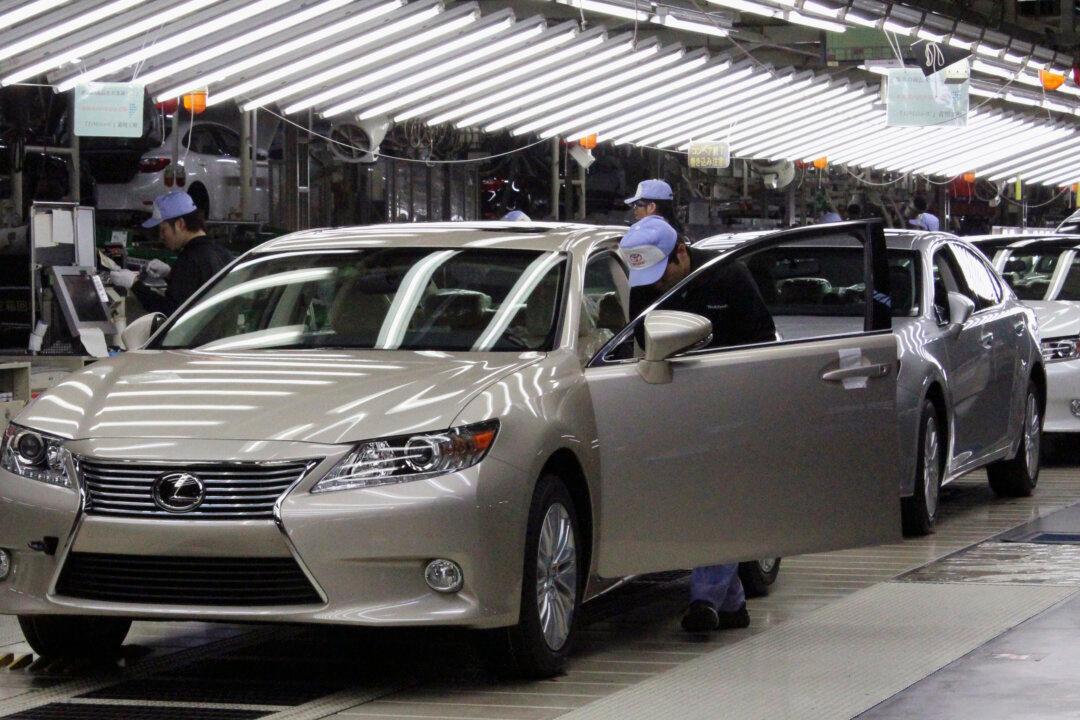A pandemic-driven parts crunch is forcing Toyota to cut production by 40 percent in assembly plants in Japan and by as much as 60 percent in North America.
Japan’s top automaker said in an Aug. 19 factory operation notice that it would be slashing production by around 40 percent across 14 plants in Japan, while a company representative told The Epoch Times in an emailed statement that it plans cuts of between 40 and 60 percent at most of its North American plants.





